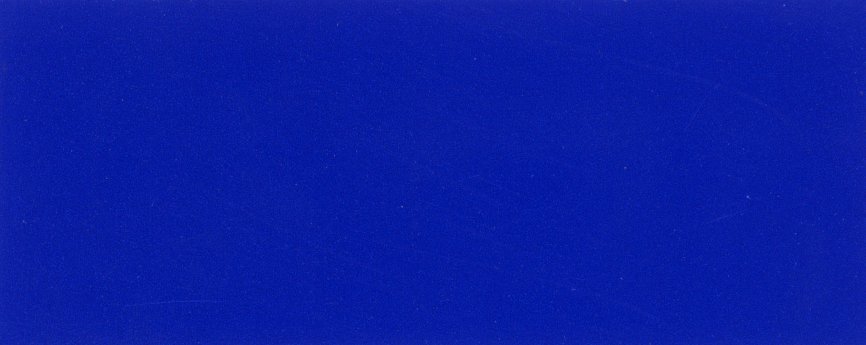Nivea blue has hardly changed for over 100 years, the famous blue has been under trademark protection since 2007. In the trademark dispute over the color brand, Beiersdorf now won against Unilever before the BPatG. Nivea blue remains under trademark protection.
The Background
A cancellation of the colour mark Nivea Blue applied for by Unilever was confirmed by a decision of the DPMA in February 2010 and also in 2013 by a subsequent judgment of the BPatG. The BGH set this judgment aside in July 2015, but for the time being on a provisional basis; the case was referred back to the Federal Patent Court for reconsideration. Especially the Representative survey which proved that the Nivea blue had become established as Sign for Nivea products had been incorrectly carried out and was therefore, according to the BGH, not argumentative.
The trademark protection for Nivea blue has now been confirmed by the BPatG ruling, and the ruling also shows that this case has had some interesting twists and turns: Beiersdorf temporarily limited trademark protection for Nivea blue to certain product groups, while Unilever ultimately withdrew the cancellation application against Nivea blue. An interesting case about the abstract colour mark Nivea-Blue and procedural tactik.

Nivea Blue
The first Nivea cream came out over 100 years ago, and since then the recipe and colour scheme have hardly changed. The distinctive Nivea blue (“Pantone 280 C”) has been protected since 2007 by the German Trademark and Patent Office (DPMA) as an abstract colour brand for body and beauty care products.
Abstract colour marks are generally not distinctive and therefore not registrable under § 8 (2) No. 1 MarkenG because the relevant public regularly perceives a colour as a decorative element and not as a product mark. Nivea, however, successfully justified the trademark registration with the public acceptance of the mark. That is to say, consumers associate the uniform and traditional dark blue as a product mark with Nivea, which can be proven by opinion research reports and representative surveys. According to general jurisprudence, it is sufficient for a product mark to be accepted by the public, even in the case of an abstract colour mark, that more than 50 percent of the public see a product mark in the colour.
Restriction of product groups for Nivea blue
Since the original opinion research report was not argumentative, a new report was drawn up in the reconsideration before the BPatG. This expert opinion of 23 April 2019 confirmed the acceptance of the Nivea blue for product groups in the area of “personal and beauty care products – in particular skin and body care products”: Deodorants and preparations for hair care, body cleansing, shaving, skin care and facial care“.
At the hearing of this case on 2 July 2019, Beiersdorf limited trade mark protection for Nivea Blue to those categories of goods. As a result, Unilever withdrew the application for cancellation of the colour mark, as it was now likely that the application for cancellation would be rejected.
Withdrawal of the request for cancellation as a procedural tactic
Beiersdorf therefore did not agree with the withdrawal of the request for cancellation and filed a motion to allow an appeal on the question:
Can the request for cancellation be withdrawn in the present proceedings without the consent of the complainant?
The Federal Patent Court admitted this appeal and answered the question with a clear “Yes”. The BPatG explained that the basis for the cancellation or opposition proceedings had already disappeared with the withdrawal of the request for cancellation and the opposition. The withdrawal of the application for cancellation in order to avoid a rejection of this application by the court constituted a legitimate procedural conduct of the respondent, the BPatG ruled.
The BPatG added that a trade mark proprietor, on the other hand, had no right to have it established that an application for cancellation had been wrongly filed, because his legal position was not impaired if his trade mark remained in the register.
Special case: Waiver in cancellation proceedings
Only in the event that the registration of a trade mark challenged by an application for annulment pursuant to Sections 50 and 54 MarkenG has been cancelled with effect “ex nunc” as a result of a waiver by the proprietor of the trade mark, only in such an event has the Federal Supreme Court established that the cancellation proceedings aimed at a declaration of invalidity “ex tunc” may not have been completely settled as a result of this (BGH EASYPRESS, 2001). Accordingly, in such a case the applicant for cancellation has the right to file an application for a declaration of the original “invalidity” of the challenged trademark (ex tunc), provided that he proves a need for legal protection.
Decision of the DPMA ineffective
Following the withdrawal of the request for cancellation, Beiersdorf also considered the original decision of the DPMA to be ineffective and filed a request for this finding. The BPatG confirmed this. With the withdrawal of the request for cancellation, the basis of the contested decision ceased to exist; this implies the ineffectiveness of this decision, the court explained and declared the DPMA’s decision of February 2010 on the cancellation of the colour mark Nivea-Blue ineffective.
The BPatG emphasised that the order should be revoked in its entirety and not only in respect of the aforementioned product groups. The BPatG emphasised that the decision should be repealed in its entirety – and not only with regard to the aforementioned product groups. With regard to the withdrawal of the request for cancellation, the decision is no longer effective overall.
Therefore, the questions underlying the cancellation proceedings are no longer to be answered, the court ruled. Nivea-Blue remains under trademark protection.
Would you also like to protect or to defend your brand?
Our lawyers are experienced in trademark and patent law, national and international law.

Sources:
Judgement of BPatG 27 W (pat) 1/17
Image:







Leave a Reply